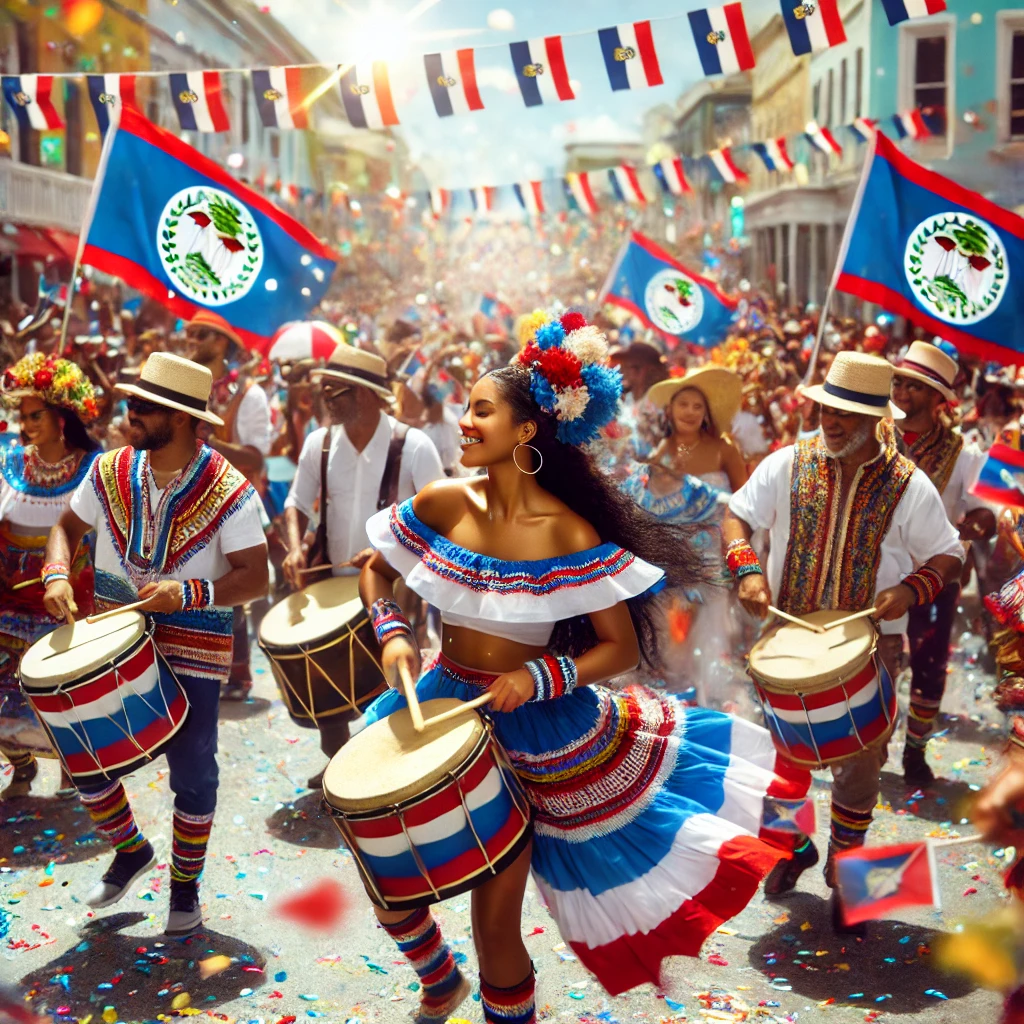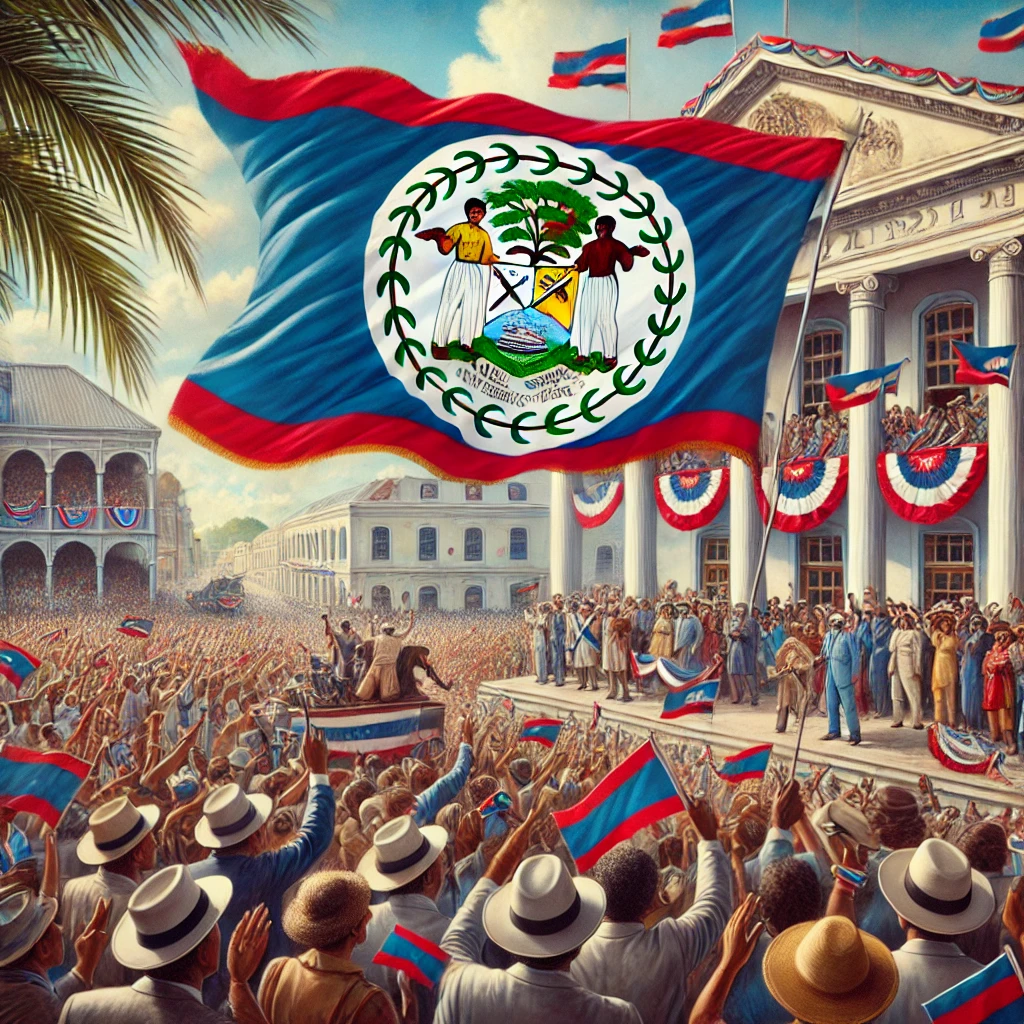The Birth of Belize
On September 21, 1981, the Central American nation of Belize officially gained its independence from the United Kingdom, becoming the last British colony on the American mainland to do so. For over a century, Belize (formerly British Honduras) had been under British control, but the growing push for self-determination among its people culminated in this historic moment. While Belize’s journey to independence was marked by political negotiations and territorial disputes, the date remains a proud milestone in the nation’s history.

With its independence, Belize became the newest sovereign state in the region, marking a pivotal moment not only for the country itself but for the larger process of decolonization that had spread across the globe throughout the 20th century. The day of independence signaled a fresh start for Belize, giving its people the power to shape their own political and social future.
A Long Road to Sovereignty
The journey to Belizean independence was not without its challenges. As early as the 1950s, Belizean leaders, most notably George Price and the People’s United Party (PUP), began advocating for self-government and independence. Under Price’s leadership, Belize moved toward greater autonomy, achieving self-government in 1964. Despite these advances, full independence was delayed due to a longstanding territorial dispute with neighboring Guatemala, which claimed Belize as part of its own territory.

Guatemala’s refusal to recognize Belize’s sovereignty complicated the independence process, requiring diplomatic intervention from international actors such as the United Nations and the Organization of American States. British military forces remained in Belize to ensure stability and deter any threats from Guatemala, a presence that continued even after the declaration of independence.
Challenges and Triumphs in Nation-Building
Independence brought new opportunities and challenges for Belize. The young nation had to build its own political and economic systems while maintaining peaceful relations with its neighbors, particularly Guatemala. Belize adopted a parliamentary democracy and established itself as a member of the Commonwealth, retaining the British monarch as head of state in a ceremonial role. The country also gained entry into international organizations, including the United Nations, helping to establish its presence on the global stage. Economically, Belize faced the task of diversifying beyond its colonial-era reliance on agricultural exports like sugar and bananas. Tourism and eco-tourism quickly became key sectors for the country, leveraging its stunning natural beauty, rich biodiversity, and the allure of the Belize Barrier Reef. Despite these economic shifts, Belize continued to grapple with issues such as poverty and limited infrastructure, common challenges for many newly independent nations.

Independence and Identity
For Belizeans, independence was more than just a political achievement—it was a moment of cultural affirmation. Belize is known for its diverse population, made up of various ethnic groups, including Creole, Maya, Mestizo, Garifuna, and East Indian communities. Independence allowed Belize to forge a stronger national identity that embraced this multiculturalism. With English as its official language, Belize is unique in Central America, distinguishing itself culturally and linguistically from its Spanish-speaking neighbors. The annual Independence Day celebrations are a vibrant display of Belize’s cultural diversity, with parades, music, and dancing reflecting the country’s pride in its heritage. The national motto, “Sub Umbra Floreo” (Under the Shade, I Flourish), captures the spirit of a country that, despite its size and past challenges, stands tall and independent.
The Lasting Impact of Independence
Belize’s independence in 1981 had far-reaching implications, both regionally and globally. It was one of the final steps in the long process of decolonization in the Americas, a symbol of the broader shift away from colonial rule that had defined much of the 20th century. As a small nation, Belize demonstrated that even countries with limited resources and complex histories could assert their sovereignty and thrive on the global stage. Today, Belize continues to navigate its path as an independent nation, balancing development with the preservation of its natural environment and cultural heritage. The ongoing dispute with Guatemala remains unresolved, but diplomacy has prevailed, and the two nations work toward a peaceful solution through international mediation. The United Nations, which had supported Belize’s independence, remains an important forum for resolving such issues.
